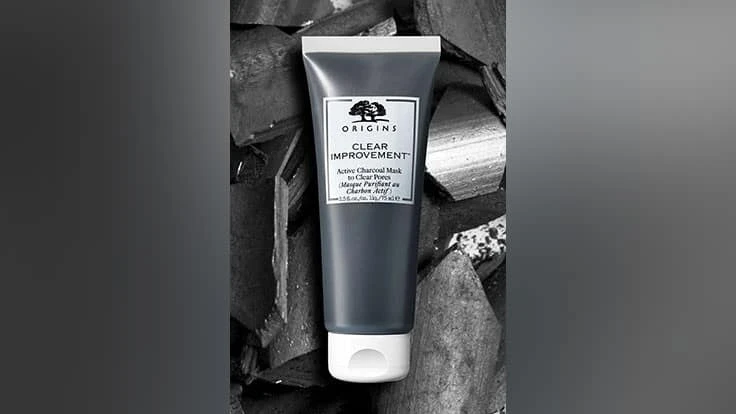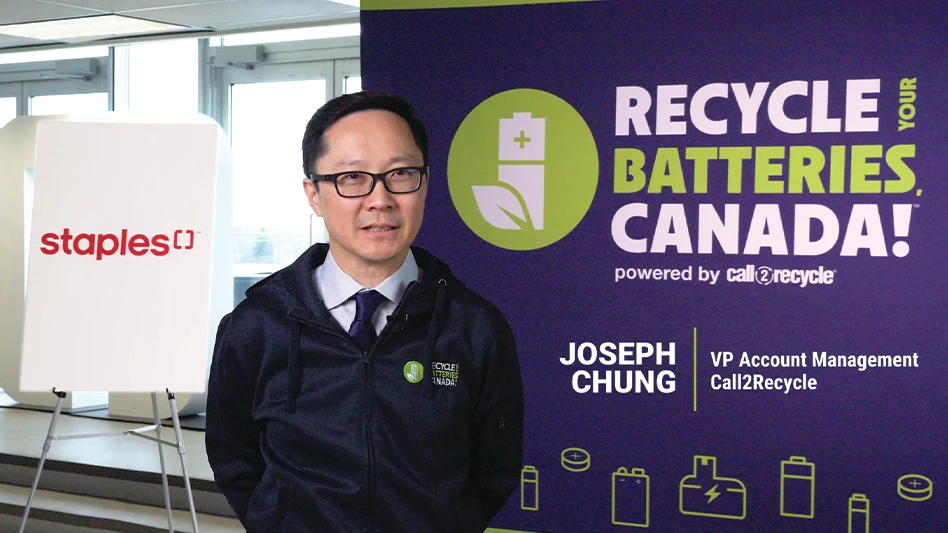
Photo courtesy of Estee Lauder Cos.
Last fall, SABIC (Saudi Basic Industries Corp.) announced that it was collaborating with prestige beauty brand The Estée Lauder Cos. (ELC) and its global skincare brand Origins Natural Resources Inc. to debut tube package for Origins’ Clear Improvement Active Charcoal Mask that is made from certified circular polyolefins from SABIC’s Trucircle portfolio. Beauty packaging manufacturer Albéa also collaborated on the effort.
The cap for the tube is made from certified circular polypropylene (PP), while the tube structure is made from certified circular polyethylene (PE) produced through chemical recycling. The polymers are part of SABIC’s Trucircle portfolio, which includes design-for-recyclability services, mechanically recycled materials, certified circular products made using chemical recycling and certified renewable polymers from biobased feedstock, SABIC says.
Sushil Iyer, vice president of global packaging at ELC, which is headquartered in New York City, says, “Sustainability has long been central to how The Estée Lauder Cos. and its brands have operated and is a key part of the company’s corporate strategy for the future.”
He adds that sustainable packaging is a key area of focus for the company, saying the partnership with SABIC, with U.S. headquarters in Houston, and Albea aligns with that goal.
Albéa says it is the first cosmetic packaging company to sign the Ellen MacArthur Foundation’s New Plastics Economy Global Commitment in October 2018, committing that all its plastic packaging would be reusable, recyclable or compostable by 2025.
ELC has committed that 75 to 100 percent of its packaging will be recyclable, refillable, reusable, recycled or recoverable by 2025, Iyer says. “In achieving this goal, the company will increase the amount of postconsumer recycled material in its packaging by up to 50 percent. Thus far, 55 percent of our packaging by weight is either recyclable, refillable, reusable, recycled or recoverable, increasing from 53 percent in fiscal 2019,” he says in early 2021.
ELC increased the amount of PCR in its packaging by 15 percent in its 2020 fiscal year, Iyer adds.
Using advanced recycled material “significantly widens the scope of application in our packaging portfolio,” he says, noting that the material “is akin to a virgin material, which allows us to maximize the recycled content used in the package without compromising quality, aesthetics and package functionality—a challenge to achieve via traditionally/mechanically recycled plastics.”
With
the help of advanced recycling, he says, ELC should be able to meet its goal of
increasing the postconsumer recycled content
used in its packaging by up to 50 percent by 2025.
Origins was selected to debut the tube because the brand “has long been committed to the well-being of people and the planet,” Iyer says. As Origins’ parent company, he says ELC has “a unique responsibility and opportunity to help the prestige beauty sector define what sustainable packaging should be for our discerning consumers. As such, we search for materials that meet our performance requirements for the consumer, that deliver on our luxury offerings, achieve our sustainability goals and that allow us to provide the highest quality experience as well.”
Sponsored Content
Labor that Works
With 25 years of experience, Leadpoint delivers cost-effective workforce solutions tailored to your needs. We handle the recruiting, hiring, training, and onboarding to deliver stable, productive, and safety-focused teams. Our commitment to safety and quality ensures peace of mind with a reliable workforce that helps you achieve your goals.
The company recognizes that designing its packaging for recycling also is important if it is to reach its recycled-content goal.
“We are focusing on reducing the potential environmental impacts of a package across its life cycle,” Iyer says. “We have worked closely with our suppliers in identifying and implementing recyclable and recycled material substitutions to nonrecyclable and virgin materials, as well as monomaterial solutions to eliminate multimaterial construction where possible. Additionally, we encourage our suppliers to design for disassembly where possible, which enables consumers to easily separate packaging components for more streamlined recycling.”
He adds, “We know that our long-term success depends on our ability to make conscious decisions to embed sustainable practices throughout our value chain and that our suppliers will play a critical role in helping us to move the needle, think innovatively about sustainability and achieve our company’s citizenship and sustainability goals.”
Get curated news on YOUR industry.
Enter your email to receive our newsletters.
Latest from Recycling Today
- GreenMantra names new CEO
- Agilyx says Styrenyx technology reduces carbon footprint in styrene production
- SABIC’s Trucircle PE used for greenhouse roofing
- Hydro to add wire rod casthouse in Norway
- Hindalco to invest in copper, aluminum business in India
- Recycled steel price crosses $500 per ton threshold
- Smithers report looks at PCR plastic’s near-term prospects
- Plastics association quantifies US-EU trade dispute impacts









